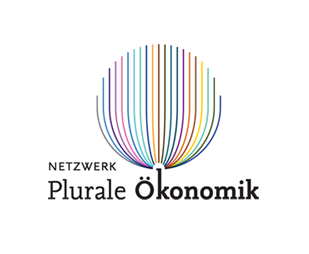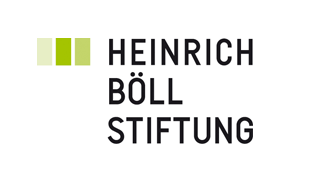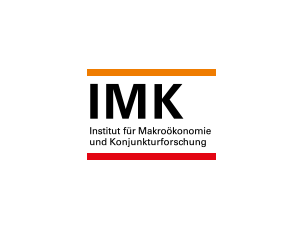Workshops and Workshop Outputs

The workshops were dedicated to different schools of thought or specific economic issues. Along with the evening program, the workshops were at the core of the Summer Academy.
In the workshops, small groups of around 10 Students met three times a day for a week. In total, each workshop consistsed of 15 sessions of 90 minutes each that combined phases of interactive lecturing, collaborative teamwork, and periods of individual work.
The workshop groups worked together in producing a common output to be shared with the other groups at the end of the Summer Academy.
The workshop facilitators are experts in their respective fields and committed to diversifying teaching in economics.
This year's workshops:
Sustainable Finance
Anne Löscher (University of Siegen)
The world is on fire – as Greta Thunberg put it. Though we have “only” reached an average global rise in temperature of 1.2°C compared to preindustrial levels, we already experience dramatic changes: extreme weather events have quadrupled since the 1980ies. If we continue on the current emission path, we might cause the earth to warm up by 4°C on average until the end of this century (IPCC, 2019). The resulting storms, droughts, floods, desertification, extreme temperature shifts etc. have fundamental macroeconomic consequences: food inflation is projected to rise, imperilling food security; the destruction of infrastructure, production sites and household wealth as a result of the physical effects of the climate crisis impact balance sheets of countries, firms, households and financial institutions with destabilising effects for the financial system and the economy as a whole; and transitional risks coming with policy decisions to shift towards a low-carbon economy such as the EU’s plan to become carbon-neutral till 2050 yield the risk of stranded assets with further destabilising effects (Batten, Sowerbutts and Tanaka, 2020; Bolton et al., 2020).
These developments also affect financial markets, its agents and regulatory bodies. The volume of financial assets classified as environmentally or socially sustainable has jumped from around US$400billion in 2012 to about US$1.300billion in the second quarter of 2020 (Belloni et al., 2020) – a rise by 325%. The Task Force on Climate-related Financial Disclosures (TCFD) was founded in 2015 as result of a G20 summit’s decision to include financial risks in financial regulation frameworks. Institutions like the Network for Greening the Financial System (NGFS) – a conglomerate of different central banks and supervisory bodies – followed in 2017. The worlds’ biggest financial investors such as BlackRock (BlackRock, 2021) and JPMorgan (JPMorgan Chase&Co., 2021) are jumping on the train by promising enormous portfolio restructurings.
Aim of this intensive workshop is 1.) to introduce the participants to the macroeconomic workings of the climate crisis as the background of sustainable finance; 2.) to introduce financial assets with ESG (Environmental, Social and Governance) criteria attached to them and their markets and important institutional players; 3.) to provide a critical perspective on the current setup of sustainable finance; 4.) and to work on in-depth case studies illustrating the workings on ESG-finance markets, its emitters and traders as well as their macroeconomic implications.
Previous knowledge on financial markets is not required. The workshop will be conducted in English, however, brief explanations can be given in German, too, if needed.
Output: The role of central banks in Sustainable Finance
Decolonizing Economics - The Art of (Un)thinking
Epifania Amoo-Adare (ZEF - Center for Development Research, University of Bonn; founder, BCI - Biraa Creative Initiative)
The Art of (Un)thinking: Interrogating Decolonial Perspectives, Practices and Modes of Becoming as Economists
relationship-centered process, 2) honor diverse ways of knowing, and 3) engage in contemplative practice, as we connect the inner and outer nature of knowledge; i.e., connect ourselves to the external world by reading and re-writing both it and the word (Freire, 1991/1983).
Output: (Un)thinking Economics - A reading list
Modern Monetary Theory (MMT)
Maurice Höfgen (Research Associate at the German Parliament and Book author of "Mythos Geldknappheit")
Course description: Arguably, money is the most important institution in today's capitalist economies. Money drives the economy as it is the central means to acquire and move resources. Consequently, the study of how the monetary system functions is of crucial relevance. Modern Monetary Theory (MMT) puts the modern monetary arrangements at the centre of its analysis. As such, MMT provides a different angle - grounded in the operational realities of the modern institutional framework - from which economic issues can be analysed and, even more importantly, from which policy options that were not previously considered viable can be derived – most prominently, the Green New Deal and an incorporation of a Job Guarantee.
This workshop will cover:
1) Understanding government finances and the monetary system
2) Unemployment and Inflation
3) Fiscal, Monetary and Trade Policy
4) Green New Deal, Job Guarantee and other policy proposals
Output: Overview and Developing Countries Case Studies
Ecological Economics and Degrowth
Birte Strunk (The New School, New York)
Dr. Corinna Dengler (University of Kassel)
This workshop focuses on a systematic debate on the Degrowth Movement, as well as its classification in ecological economics. It starts pointing out the necessity of a social-ecological transformation and criticism on green growth as solution for current challenges. In a next step we are going to discuss a theoretical-conceptual basis for a social-ecological transformation towards a degrowth society. During the last part of this workshop we will debate controversial topics in the Degrowth Movement, such as degrowth and state, feminist perspectives on degrowth as well as connections to inequality movements in the global south.
Feminist Economics
Lucía Espiñeira (University of Buenos Aires), Micaela Fernandez Erlauer (University of San Martín) and Justina Lee (HWR Berlin)
This workshop investigates how a feminist perspective deepens our understanding of the way the economy works. Phenomena such as unpaid care work, the gendered division of labour, power structures and discrimination will be of central interest to us and will be understood as the invisible basis upon which everything else operates. We will give an overview of the central principles, concepts and insights of feminist economics and its critique of mainstream economics. Furthermore, this workshop will consider questions related to the crisis of reproduction, migration, the feminist waves, the effects of austerity policies on women, including countries in the Global South as well as societal struggles surrounding the aforementioned phenomena.
Output: Feminist Economics - A Crashcourse
Economics of Discrimination
Dr. Annie Tubadji (Swansea University)
This course on the Economics of Discrimination aims to provide a solid foundation for young economists and scholars from related fields to the topic of discrimination in economics from a pluralist perspective. The students will learn what is discrimination, what are the socio-economic reasons for it to occur and what are the socio-economic aftermaths from its occurrence (in terms of polarization and socio-economic losses). The spine of the course is the dialectic link between the cultural context and the economy, as conceptualized by the Culture Based Development (CBD) paradigm. CBD is a novel pluralist research paradigm that bridges the neoclassical and cultural theory fields for the purpose of studying discrimination and other aspects of culturally biased human behaviour and socio-economic choice. The course provides a brief overview of the two contending perspectives on discrimination in modern economics – the rational and bounded discrimination approaches. To empower the students to grasp the contending perspectives, the course overviews the cornerstone concepts and contributors to the topic of discrimination in Neoclassical Economics and Cultural Theory, comparing and contrasting their approaches. Next, it dedicates one day to the CBD contributions to the topic of discrimination and finishes with outlining further heterodox approaches and most novel developments in the field of the economics study of discrimination from a pluralist perspective. Each day enjoys a key-note address by a guest speaker – a prominent figure in their respective field. The students will be invited to discuss in an open Q & A session their impressions and curiosities about the material. They will also have the opportunity to apply any of the contending perspectives presented in the analysis of a case of discrimination by their own choice.
Output: The impact of raciscm on how children learn - A neoclassical and a cultural theory approach
Political Economy based on Karl Marx
Anna Weber (University of Kassel) and Philipp Chmel (International Socialist Alternative)
This workshop will look at structural inequalities and interests within a capitalist economy. We will discuss central concepts from the Critique of the Political Economy by Karl Marx, such as the social relations behind capital, structural exploitation, and tendencies of crisis. We will also look at the intertwining of capitalist exploitation with other relations of domination, such as gender inequality, post / neo-colonialism, and the human-nature relationship. How can we understand capitalist tendencies to accumulate infinitive profits in contradiction to the natural boundaries of the planet? How can we think about overcoming social inequality and achieve climate justice? The aim of the workshop is that the participants will be able to develop their own position towards the intellectual legacy of Marx and Marxism to address current global challenges.
Output 1: Presentation - Trade Unions and climate change
Output 2: Presentation - The visualization of capital as value in motion
Output 3: Instagram story on transnational debt: 1 - 2 - 3 - 4 - 5
Output 4: Instagram story on Marx, value and financialization: 1 - 2 - 3 - 4 - 5 - 6 - 7 - 8- 9
Post-Keynesian Economics
Valeria Jimenez (Institute for International Poltical Economy Berlin)
This workshop will introduce you to post-Keynesian economics (PKE). We will begin by contextualizing PKE and discussing similarities and differences with other schools of thought. We will learn about key macroeconomic arguments and concepts required to understand post-Keynesian models such as fundamental uncertainty, social conflict, and effective demand. The workshop will then introduce you to post-Keynesian-Kaleckian models. Topical issues such as hysteresis and path dependency will also be discussed. Finally, we will introduce stock-flow consistent modeling with a focus on ecological macroeconomic models.
Output: Video - Post-Keynesian Economics in opposition to orthodox economics
Cooperative Economics
Jerome Warren (Universtität zu Köln)
Cooperatives arose as "double movements", in the language of Karl Polanyi, to fend off the immiseration and social squalor inflicted upon the growing system of liberal markets that capitalism required to flourish. Cooperatives operate and began with certain core values: trust, comradery, mutual aid, democracy, open-ness, inclusion and non-discrimination and a desire to reduce or limit the role of capital returns on organizational thinking and decision-making. Each of these values strictly challenges the premises of contemporary mainstream (read: neoclassical and offshoots) economic theory (which i refer to as competitive econ). Competitive econ uses theoretical problems like the Prisoner's Dilemma as foundational tools for describing human behavior and its ideas on Pareto optimality, welfare effects and market equilibrium are based on very strong normative assumptions of non-cooperation. These facts, and the ensuing interest in alternative economic structures, like cooperatives, renews the need for a new, moral economics. Cooperative econ takes as its basis notions advanced in interdisciplinary circles, from heterodox econ to political economy, economic sociology, anthropology and psychology and takes as given that norms form a central role in forming preferences. Whereas competitive econ assumes preferences are exogenously given and fails to open up the "black box" of preference formation, cooperative econ places a central emphasis on the process, context and path-dependence of preferences, and considers at least two distinct generators of preferences: morality (otherwise referred to as norm-based rationality) and cost-benefit analysis (akin to the neoclassical concept of utility). Within this workshop, we will learn that each of these generators is important and that to ignore one in favor of the other results in a handicapped and partial perspective on human behavior, including economic behavior. We will attempt to develop the outlines of a theory of cooperative economics in the course of the workshop, and be continually looking at various aspects of the practice of such issues in day-to-day life. Issues discussed will include the care economy, social economy, cooperative principles, issues resulting from "real competition", the limits of behavioral economy and other issues participants bring into the course.
Output: What is Cooperative Economics? Explanation and role play
Political Ecology, Degrowth and the Green New Deal
Riccardo Mastini (University of Barcelona)
The first day of the workshop is intended to initiate students to the foundational concepts of political ecology, with special emphasis on the manifold dimensions of environmental justice. Political ecology investigates the social distribution of environmental costs and benefits and their social drivers. It does so by deconstructing concepts that are taken for granted like “nature” or “the economy”, excavating their ideological origins.
After laying these foundations, on the second day of the workshop we will venture into the theory of degrowth. Degrowth is, first, a critique of the ecological consequences of economic growth. The faster we produce and consume goods, the more we transform and damage the environment. Second, economic growth is no longer desirable. The costs of growth exceed its benefits. Growth has become by now “uneconomic”. Third, growth has always been based on exploitation. Without a surplus, there is no investment and no growth. To have a surplus, capitalists or governments must exploit someone, somewhere.
The question on everybody’s mind at this point will probably be: what would a degrowth economy look like? On the third day of the workshop, we will look at some of the flagship policy proposals articulated by degrowth scholars and activists. These policy proposals are an attempt at reforming the institutions of property, work, and money to ensure social inclusion, economic equality, and ecological sustainability.
On the final day of the workshop, we will engage with the emerging political discourse of the Green New Deal. This discourse postulates the need for an active role of the State in the economy to drive the ecological transition. To do so, Green New Deal advocates aim at deploying the power of public investment and coordination is a historic break from neoliberalism. However, for this discourse to be up to the task of staving off the mounting global ecological breakdown, the theoretical and policy insights provided by degrowth must be incorporated into a socio-ecological transformation.
Output 1: Policy Brief - Equitable downscaling
Output 2: Presentation - Equitable downscaling
Future of the Commons
Simon Sutterlüti (Commons Institute)
Commons stand for a plurality of practices ‘beyond market and state’ as the famous Commons scholar – and first female noble prize winner of economic - Elinor Ostrom put it. Their practice and theory challenge classical economic theory and stand for a different mode of caring, producing and governing. Within this workshop we want to dive into theory, practice and utopia of Commons following four blocks:
Our first block will be dedicated to understanding Commons. Different approaches to analyze Commons were put forward, and in discussion with Garret Hardin’s ‘Tragedy of the Commons’, neoclassical commons theory, Ostroms school and others we try to understand history, well-known commons projects – such as Wikipedia, common pastures or community-supported agriculture - and everyday practice of Commoning – the practice of producing Commons.
Our second block investigates the relationship of Commons and other form of socioeconomic provisioning such as market economy and state-planned economy. Commons activists and theorists put Commoning forward as a third-way of economic re/production that is essentially democratic, care-oriented and develops a non-colonizing relationship towards our natural surroundings. We will evaluate their critic of market and state-planned economy and discuss their claims.
As Commons usually are thought to be small-scale or niche-phenomena in our third block we take a look at theories that try to upscale Commoning to a society-wide mode of coordination, caring and production such as Ecommony, Care-Economy or Commonism.
Our fourth block is dedicated to the question of socio-ecological transformation. Commons theoretician and activists criticized existing transformation theories for devaluating or even neglecting the importance to not only reform existing structures, but to create and even live a different economy. We will discuss these claims and ask what part Commons could and should play in a socio-economic transformation.







